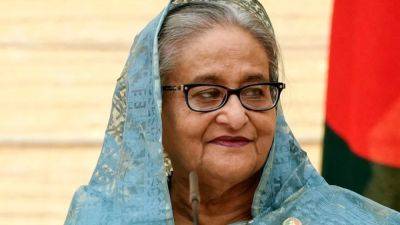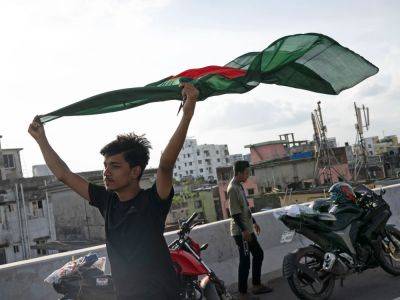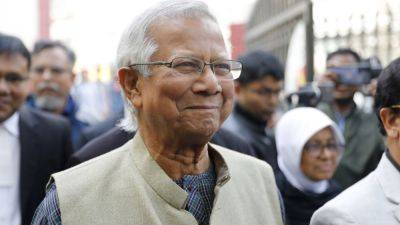Bangladeshi youth toppled Hasina. Can they spark real change?
“Inni, we are independent!” my 26-year-old cousin chanted from Shahbagh, a neighborhood in Bangladesh’s capital Dhaka, as millions joined a major protest march on Monday to the country’s Parliament House.
Soon after, social media was flooded with news of “a new independence” – a free Bangladesh reborn after the autocratic leader of over 15 years, Prime Minister Sheikh Hasina, fled the country in the face of defiant public demand for her resignation.
It was the startling culmination of weeks of unrest that resulted in some 300 deaths and thousands of arrests.
Now, the young protesters who instigated the protests have a real opportunity to contribute to the political discourse in a previously discriminatory system of government. Will the interim government listen – and bring real change to the country?
What’s been happening in recent weeks?
The student protests erupted last month over a quota system that reserved 30% of government jobs for Bangladesh’s 1971 liberation war veterans and their relatives. The students demanded a merit-based system, deeming the current one unfair and biased.
As the protests grew, Bangladesh’s faux-democratic regime totally broke down. The government cut mobile internet, imposed a nationwide shoot-on-sight curfew, and deployed the army and police to the streets.
The government’s violent response quickly transformed the demonstrations into a full-fledged “people’s uprising” aimed at toppling Hasina and her Awami League party.
After days of intense clashes between student protesters, police and ruling party activists, the Supreme Court reduced the quota to just 5% of jobs for veterans and their relatives. Despite this concession, protesters continued to demand accountability for those killed in







